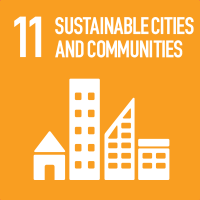Studying at the University of Verona
Here you can find information on the organisational aspects of the Programme, lecture timetables, learning activities and useful contact details for your time at the University, from enrolment to graduation.
Study Plan
This information is intended exclusively for students already enrolled in this course.If you are a new student interested in enrolling, you can find information about the course of study on the course page:
Laurea magistrale in Biotecnologie per le biorisorse e lo sviluppo ecosostenibile - Enrollment from 2025/2026The Study Plan includes all modules, teaching and learning activities that each student will need to undertake during their time at the University.
Please select your Study Plan based on your enrollment year.
1° Year
| Modules | Credits | TAF | SSD |
|---|
1 module among the following1 module among the following1 module between the following1 module among the following1 module between the following2° Year It will be activated in the A.Y. 2025/2026
| Modules | Credits | TAF | SSD |
|---|
1 module between the following1 module between the following1 module among the following| Modules | Credits | TAF | SSD |
|---|
1 module among the following1 module among the following1 module between the following1 module among the following1 module between the following| Modules | Credits | TAF | SSD |
|---|
1 module between the following1 module between the following1 module among the following| Modules | Credits | TAF | SSD |
|---|
1 module among the followingLegend | Type of training activity (TTA)
TAF (Type of Educational Activity) All courses and activities are classified into different types of educational activities, indicated by a letter.
Biorefineries (2024/2025)
Teaching code
4S008285
Teacher
Coordinator
Credits
6
Language
Italian
Scientific Disciplinary Sector (SSD)
ING-IND/25 - CHEMICAL PLANTS
Period
Semester 2 dal Mar 3, 2025 al Jun 13, 2025.
Courses Single
Authorized with reserve
Learning objectives
The course is dedicated to the definition of the concept of BIOREFINERY and its impact in the field of industrial biotechnology and bioeconomy in general. The three main steps of a biorefinery process (feedstock preparation, fermentation, down-stream processing for product recovery) will be the basis of the teaching activity. Several examples of fine chemicals production from dedicated crops or agro-/industrial-/civil- waste will be given during the course
Prerequisites and basic notions
Basic knowledge of chemistry and biochemistry, microbiology and reactor/plant engineering are required
Program
The program will touch the following topics:
- The concept of Biorefinery, the valorisation of dedicated crops, microalgae, waste, by-products, and waste from various industrial sectors, in particular the food-processing sector. Context in which biorefineries are inserted: the so-called Circular Bio-Economy.
- Preparation systems (pre-treatments) for biomasses to be used as feedstock for the biotechnological platform (shredding and comminution, enzymatic attack, chemical treatment)
- Biotechnological processes for converting biomass into biofuels, high added value biomolecules, bacteria, enzymes, nutrients (aerobic and anaerobic processes, types of reactors, plant equipment, process monitoring)
- Recovery and purification of biomolecules of interest (solid/liquid, liquid/liquid separations, recovery of molecules) - Application examples and some points on technical-economic analysis of industrial processes
- Safety and protection in industries
Bibliography
Didactic methods
The course will be held face-to-face.
Students, working in groups, will present a specific case study (biorefinery).
One technical visit to an industrial biorefinery will be organised
Learning assessment procedures
The final exam is dedicated to verifying the learning of knowledge and skills defined in the "Formative objectives" of the course. To this end, students will have to take an oral test dedicated to the definition, even quantitative, of hypothetical biotechnological supply chains (verification of learning skills), in which the level of knowledge acquisition about the various operations will be deepened unitary standards applicable in biorefineries as well as the general policy context.
Evaluation criteria
Capability in defining trains of fundamental unit operations in the biotech supply chain. Comprehension of biological/chemical/physical phenomena governing biorefineries.
Criteria for the composition of the final grade
Evaluation of the oral exam on a 30 points scale
Exam language
Italiano



